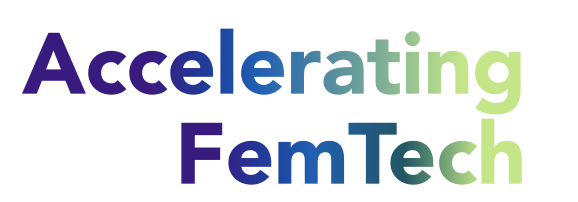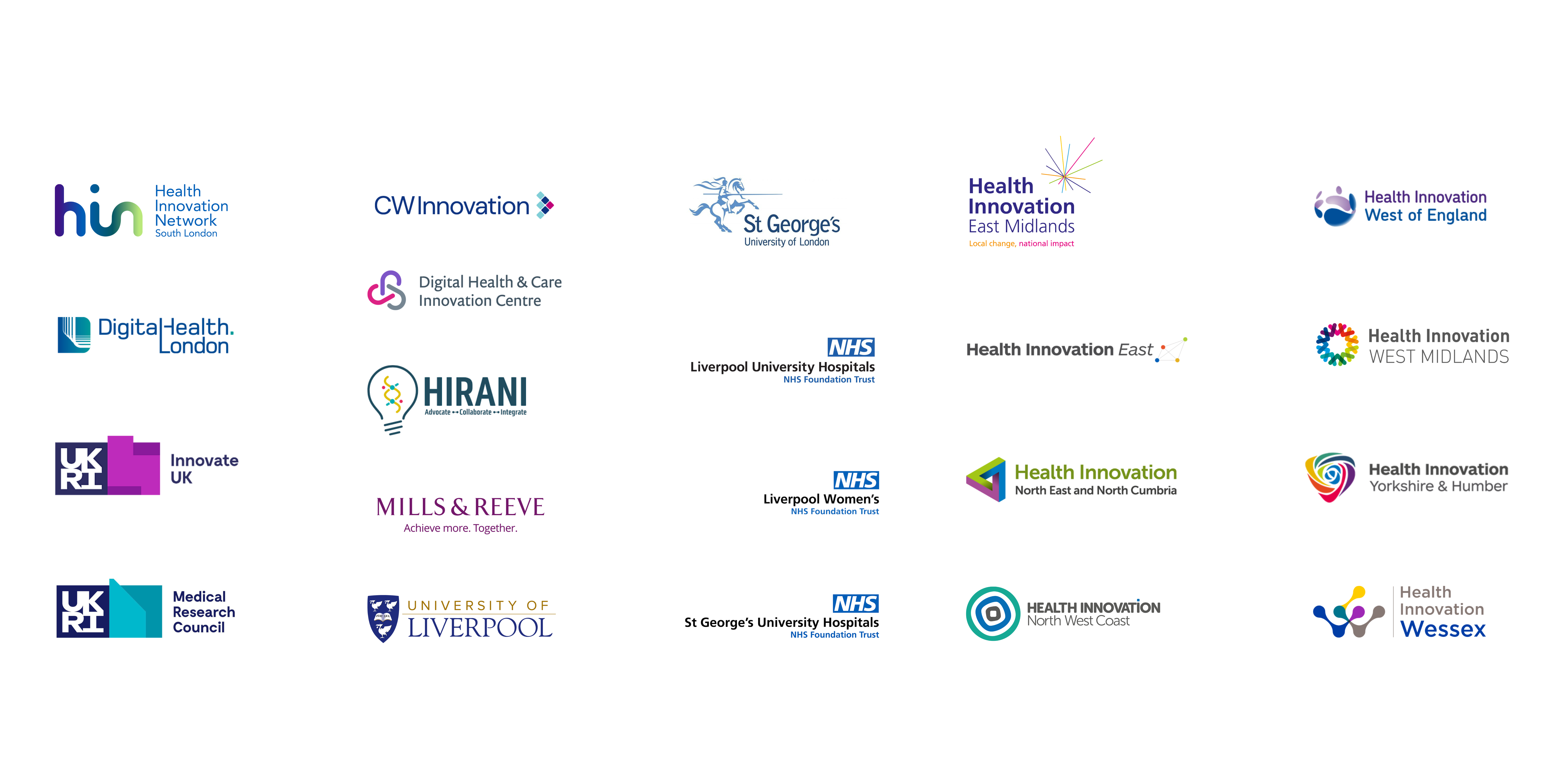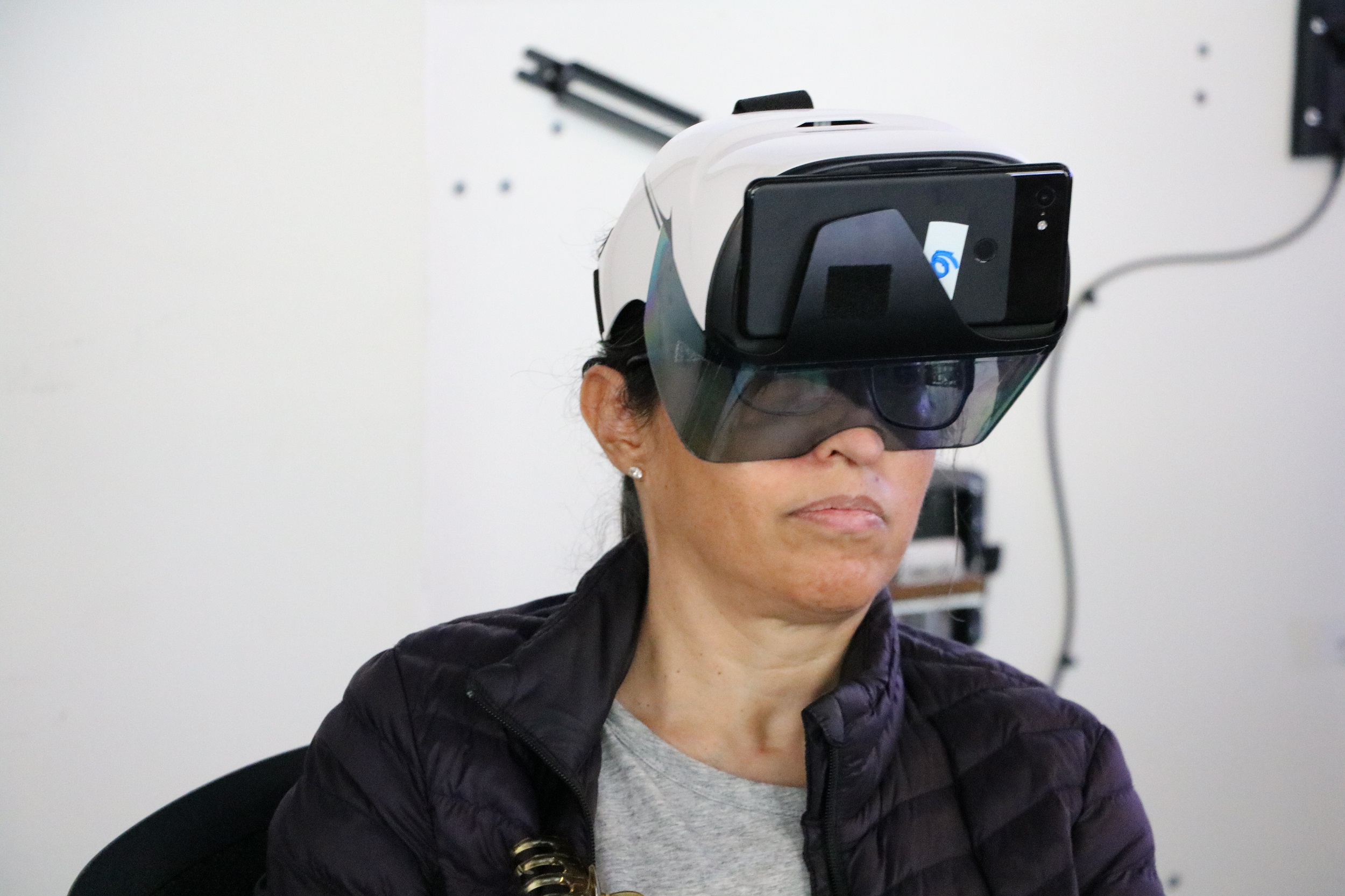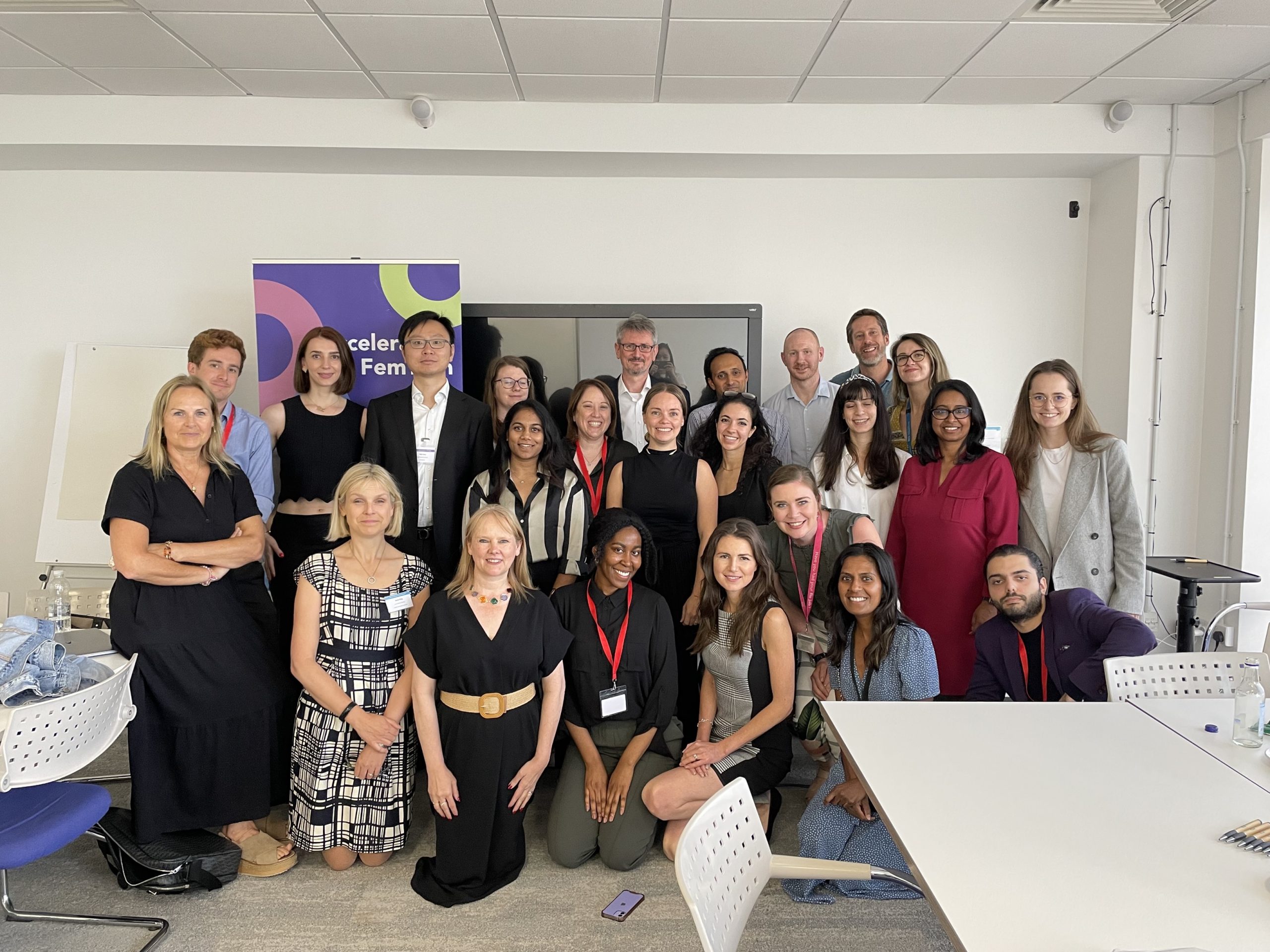Accelerating FemTech supports early-stage companies, university spinouts and entrepreneurial-minded academics from across the UK with innovations that address urgent challenges in women’s health. The programme supports innovators to gain commercial and funding momentum for long-term success through an intensive learning programme of workshops, mentoring and peer collaboration, as well as support to prepare for a special feasibility funding opportunity through the Innovate UK Biomedical Catalyst.
In this blog, Accelerating FemTech advisory board member Katherine Church explores the role of support programmes for innovators in women’s health in enhancing the lives of women. Katherine, who is Women’s Health Practice Director at SmartCo Consulting and Chief Digital Officer at KC Digital Consultancy, also highlights how uplifting innovators in this field – and in particular women founders - could be the key to changing the tide for the gender health gap in the UK.
In the UK, women (cis and trans) specific health and care has been woefully under researched and underinvested. As most countries around the world battle with greater health risks for men, women in the UK are facing the largest female health gap in the G20 and the 12th largest globally. It can take an average of 7.5 years to be diagnosed with endometriosis and in the last 40 years, only two new medicines have been approved for use in pregnancy.
Beyond sexual, reproductive and maternal health, there are also stark inequalities across many common diseases, such as cardiac health, inflammatory diseases and chronic pain. Unfortunately, this is a trend that is repeated across the world. As outlined by the World Economic Forum’s ‘Closing the Women’s Health Gap’ insight report, women spend 25% more time on average in ‘poor health’ than men.
With mandatory teaching and assessment relating to women’s health for medical students only being introduced this month, from the 2024/2025 academic year, the UK’s gender health gap is a systemic issue. Women’s health is stigmatised, and women's health startups often lack the commercial and funding support they need to reach the women who need their products. On top of this, the research data which supports the development of business and investment cases is limited. For example, it was only in 1993 that the US National Institutes of Health (NIH) mandated for government funded clinical research to include women.
This, in addition to general underfunding for women’s health in the UK, exacerbates the issue. In 2022/2023, the Department of Health and Social Care and its Agencies spent a total of £176.8 billion on health and care services, though only £25 million had been pledged in March 2023 for women’s health hubs in England.
Women entrepreneurs also face additional barriers in securing funding, with only 2% of all UK venture capital (VC) going to women-led businesses in 2021. The funding disparities faced by women founders are often made worse by:
Role models
It's hard to be what you can't see. There are not enough women in senior positions in startups and investors, making it tough for women to see themselves in those roles. It’s even worse for Black women, for disabled and queer women.
Accessing mentorship and support
Female founders often lack access to mentorship and support networks, which can make it difficult to navigate the challenges of starting a business. This can be particularly true for women from underrepresented backgrounds, including women from the global majority and women from lower socio-economic backgrounds.
Balancing work and family life
Some female founders face the challenge of balancing work and family life, particularly if they have caring responsibilities.
Some other barriers faced by innovators in the women’s health sector include:
Data and research gaps
Women's health is often under-researched, which can make it difficult for founders to develop evidence-based products and services. This can also make it challenging to attract funding and support from investors who may be sceptical about the potential market size or growth prospects.
Regulatory hurdles
The UK's regulatory environment can be a complex and challenging for women's health startups. Founders may need to navigate multiple regulatory bodies, such as the Medicines and Healthcare products Regulatory Agency (MHRA) and the National Institute for Health and Care Excellence (NICE), which can be time-consuming and costly.
The barriers that innovators are facing in this field are vast, but I have seen through my work across the sector that Femtech entrepreneurs are ambitious, resilient and determined to make a difference to real women’s lives. At its core, Femtech empowers women with greater control and understanding of their health, transforming how they experience, manage and access healthcare. There is innovation in every conceivable area of women’s health – we are bursting with incredible, considered solutions, which are designed with women and for women. This is exemplified by companies from last year’s cohort of the Accelerating FemTech programme. Alumnus company Bloume, for example, is the world’s first AI-powered digital solution for chronic pelvic pain, providing psychological support and pelvic floor physiotherapy to improve women’s physical and mental health. Elsewhere, P.Happi are set to revolutionise the way we address women’s intimate health concerns by developing innovative biome-protective products.
Founders in women’s health have the solutions, but now they need the space, support and funding to flourish. As outlined by Lord Darzi’s independent investigation of the NHS in England, innovation and reform go hand-in-hand for driving change. This is why innovator support programmes are vital in changing the tide for innovators in this space.
Through networking, mentoring and introductions to key stakeholders, Accelerating FemTech provides early-stage companies, university spinouts and entrepreneurial-minded academics with invaluable opportunities. Through the programme, founders can unlock the support, knowledge and funding they need to drive their innovations forward, creating a more inclusive and equitable healthcare system.

Apply to be part of Accelerating FemTech
Applications for the programme are open until midnight on Sunday 13 October 2024.
Apply nowLearn more about the programme: 101 Webinar
This is your chance to learn more about the Accelerating FemTech programme, engage with members of the programme delivery team and some of the companies who have been previously supported on Tuesday 1 October from 12:30PM to 1:30PM.
Sign up to the webinar






